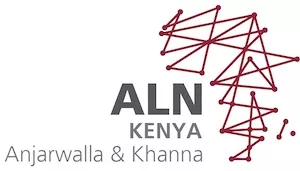Introduction
The Tax Laws (Amendment) Act, 2020 (the TLAA), was
enacted on 25 April 2020 (click here for highlights on the Act in
our earlier Legal Alert). One of the amendments introduced by the
TLAA was the deletion of "insurance agency and insurance
brokerage services" from the list of exempt supplies
under Paragraph 10 of Part II of the First Schedule to the Value
Added Tax Act, 2013 (the VAT Act).
The effect of this deletion was to subject insurance agency and insurance brokerage services to Value Added Tax at the prevailing rate of 14 percent (noting that they were previously VAT exempt). In the insurance business, agents and brokers serve as intermediaries for the insurance companies to procure insurance business from customers for which they earn agency or brokerage commissions in return. The amendment effectively required the insurance intermediaries to start charging VAT on the agency and brokerage services they offer, with effect from 25 April 2020.
Insurance premiums, which form the bulk of insurance companies' income, are exempt from VAT. As a result, the VAT to be charged by insurance agents and brokers, under the TLAA, would be borne by insurance companies as they would not be able to recover the VAT cost from their clients. VAT is a consumption tax that should be borne by the final consumer (i.e. the policyholders) and therefore, since the insurance companies are not in a position to pass on the VAT cost, this will result in an unfair tax burden on their part.
The Association of Kenya Insurers (AKI), represented by A&K, challenged this amendment in a constitutional petition filed at the Constitutional and Human Rights division of the High Court. This was on the primary grounds that:
- the amendment of the VAT Act by the TLAA created uncertainty to the extent that its application would go against the provisions of the Insurance Act which is the substantive law that governs insurance business prescribes the limits of the management expenses which can be incurred by insurance companies as well as the maximum agency and brokerage commissions which are payable to brokers;
- the amendment was made without sufficient public participation on the Tax Laws (Amendment) Bill, 2020 by key stakeholders including those who would be directly affected (such as insurance companies); and
- the introduction of VAT on insurance agency and brokerage services imposed an unfair tax burden on insurance companies.
Pending the hearing and determination of the constitutional petition by the High Court, AKI sought conservatory orders to suspend further implementation, administration, application and enforcement of the amendment to the VAT Act considering the impugned amendment has been in place since 25 April 2020.
The High Court, in a ruling delivered on 16 July 2020, found in favour of AKI and granted conservatory orders pending hearing and determination of the main petition. The High Court noted that:
- AKI presented an arguable case as to whether they were granted an adequate opportunity for public participation and whether the period provided for public participation was sufficient;
- Failure to grant the conservatory orders would prejudice AKI members as they would have already paid the VAT and would not be able to get it back; and
- Granting the conservatory orders protects AKI's members' constitutional rights under Articles 27 and 40 of the Constitution of Kenya, 2010.
Conclusion
The grant of the conservatory orders has provided relief for
insurance companies and the insurance industry in Kenya in general
as the insurance agency and brokerage services will not be subject
to VAT pending the hearing and final determination of the
constitutional petition that challenges the amendment to the VAT
Act. However, if the High Court finds the amendment to be
constitutional, VAT will be chargeable on the agency and brokerage
services. The constitutional petition is set for hearing on 3
November 2020.
While any aggrieved party has the right to lodge an appeal at the Court of Appeal against the High Court's ruling, which is the subject of this Legal Alert, the suspension of VAT on insurance agency and brokerage services will continue to be effective until the constitutional petition is heard and determined later this year or until the ruling of the High Court is set aside or stayed by the Court of Appeal. This, therefore, means that the insurance sector in Kenya will continue to operate as it did prior to the enactment of the TLAA on 25 April 2020, without VAT being charged on insurance agency and brokerage services until a final determination of the Constitutional Petition is made by the High Court.
The content of this article is intended to provide a general guide to the subject matter. Specialist advice should be sought about your specific circumstances.




